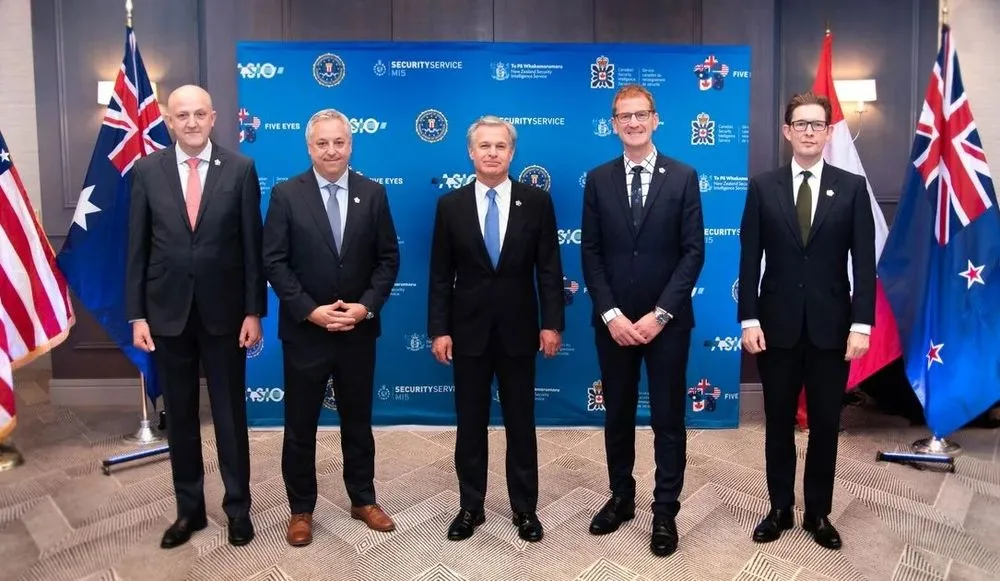Five Eyes intelligence chiefs warn of ‘sharp rise’ in commercial espionage
The domestic intelligence chiefs of the Five Eyes alliance warned businesses on Tuesday that they were seeing a “sharp rise” in attempts by hostile states to steal intellectual property.
Speaking on the same stage for the first time, at an event hosted by the Hoover Institution at Stanford University, the agency heads presented five principles they wanted businesses to adopt to keep staff and information secure.
Praising the Five Eyes intelligence alliance partnership, MI5’s director general Ken McCallum described it as “the world’s oldest and most significant intelligence alliance,” and said the “strength of our partnership saves lives in our countries and around the world.”
But he cautioned — alongside his counterparts from the Australian Security Intelligence Organisation (ASIO), the Canadian Security Intelligence Service (CSIS), the Federal Bureau of Investigation (FBI), and the New Zealand Security Intelligence Service (NZSIS) — that “across all five of our countries we are seeing a sharp rise in aggressive attempts by other states to steal competitive advantage.”
The MI5 chief said that this contest was “particularly acute on emerging technologies; states which lead the way in areas like artificial intelligence, quantum computing and synthetic biology will have the power to shape all our futures.”
“We all need to be aware, and respond, before it’s too late,” warned McCallum, announcing that the Five Eyes was moving to improve “security across our five nations by offering practical steps organisations can take to keep themselves safe.”
Authorities in the U.K., including MI5's National Protective Security Authority and the National Cyber Security Center, have published updated Secure Innovation guidance for start-ups and spin-outs working on “cutting-edge technology,” covering security around investments, supply chains, travel, IT networks and cloud computing.
McCallum did not identify which nation-states were responsible for the sharp rise, although Western governments have long accused China of state-sponsored commercial espionage.
Back in 2015, the U.S. President Barack Obama and President Xi Jinping of China signed a bilateral agreement “that neither country’s government will conduct or knowingly support cyber-enabled theft of intellectual property, including trade secrets or other confidential business information, with the intent of providing competitive advantages to companies or commercial sectors.”
But by 2020, according to William Evanina, the director of the U.S. National Counterintelligence and Security Center, the FBI was investigating more than 1,000 intellectual property theft cases associated with China, as reported by ASIS.
Beijing has denied these allegations and — particularly in response to British allegations about China’s cyber operations — responded that its “rapid progress in science and technology has not been achieved by stealing or robbing others, but with the wisdom and hard work of the Chinese people.”
Alexander Martin
is the UK Editor for Recorded Future News. He was previously a technology reporter for Sky News and a fellow at the European Cyber Conflict Research Initiative, now Virtual Routes. He can be reached securely using Signal on: AlexanderMartin.79



